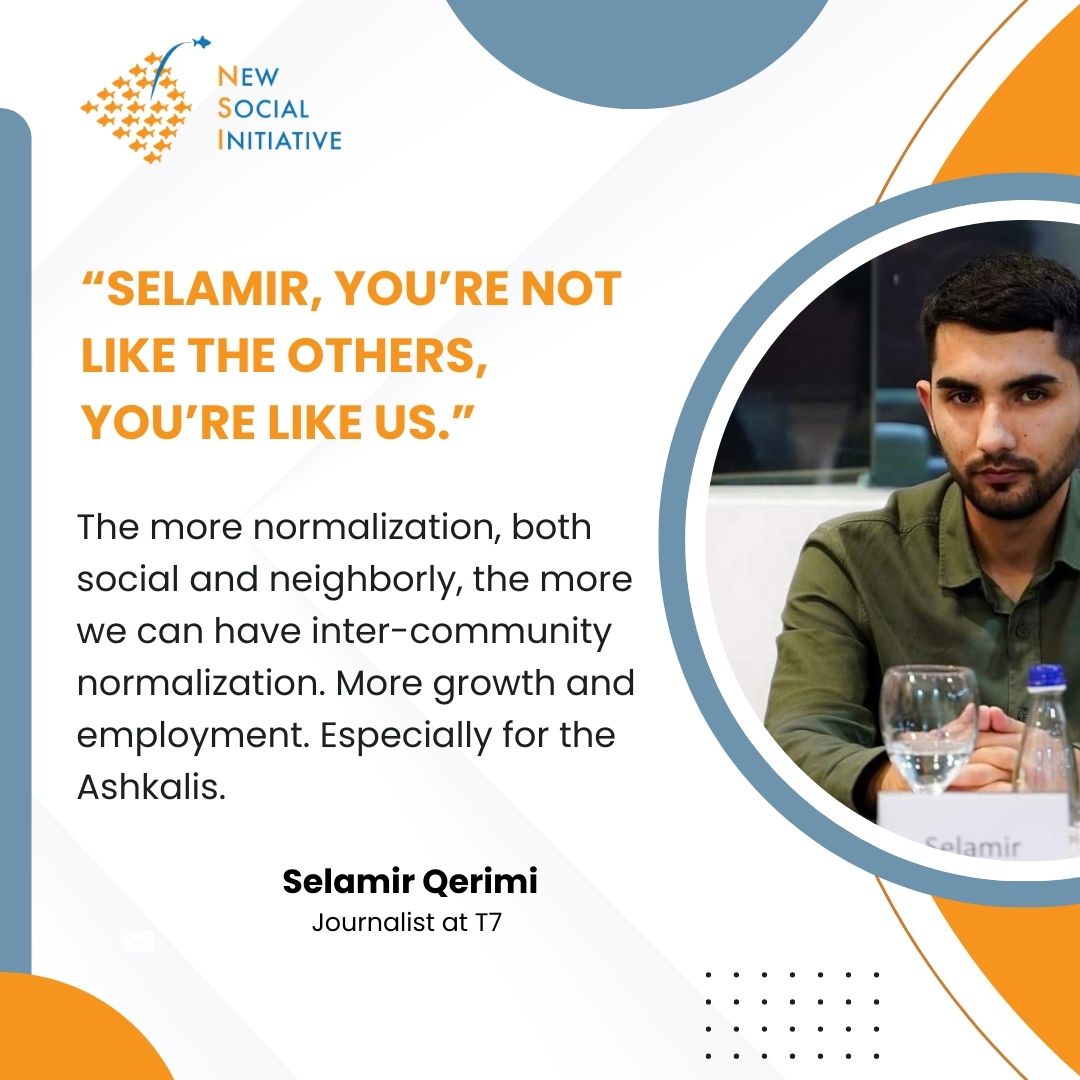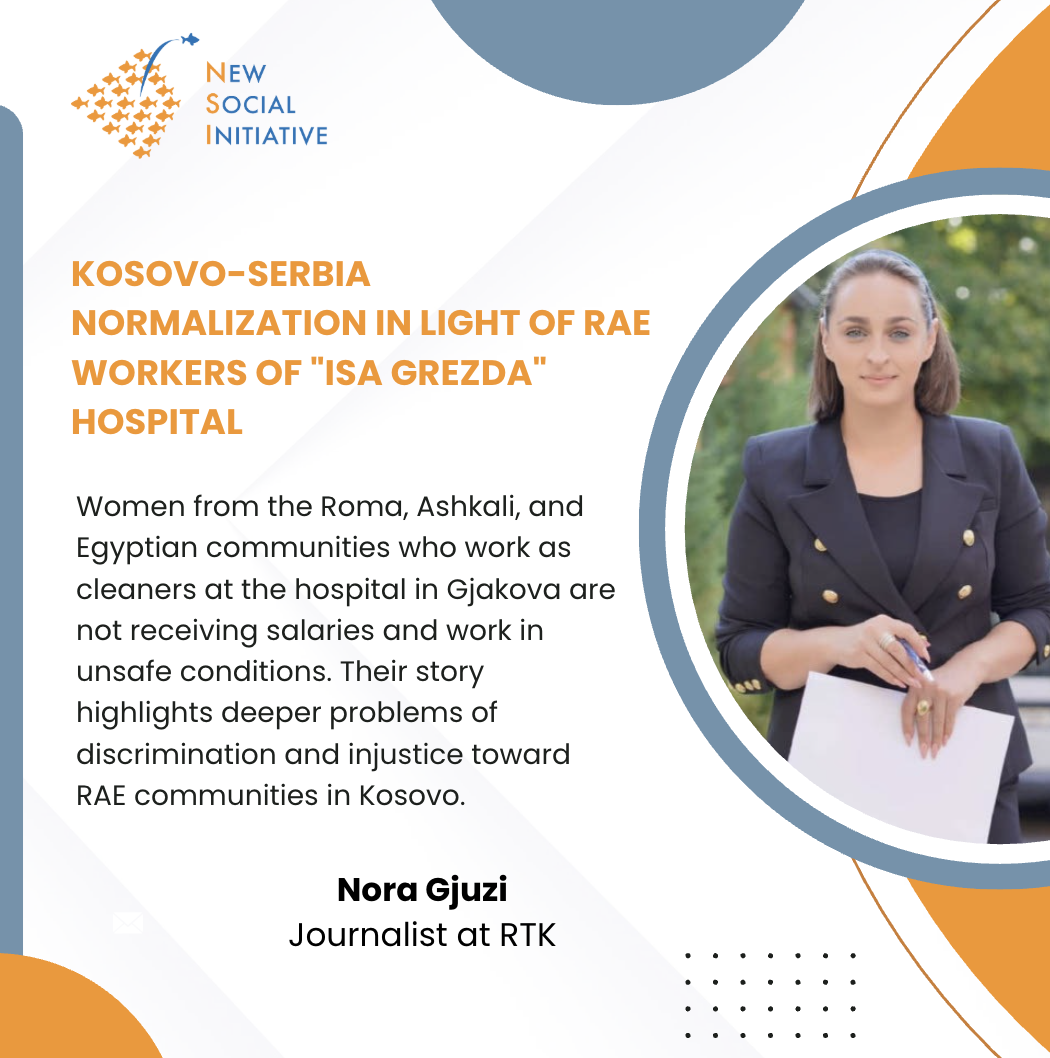The media has undergone numerous changes throughout history, especially since the end of the 20th century. The development of technology is noticeable, and the speed with which we share the information has led to a change in reporting standards.
In addition to the already well-established – television, radio, newspapers, and later websites- new media appeared in the first decade of the 21st century – social networks. The placement of information happens much faster, and the information is shorter and more effective. There is a need for sensationalism and the desire to be the first.
Nowadays, anyone can publish information, supporting it with a photo or video. It seems that whoever has a mobile phone can be a journalist. The scarier and more obscene the content is, the more clicks it attracts. Unfortunately, this incites much misinformation and false news that create misperceptions about professional media.
The influence of social networks seems to have been best understood by politicians who use them to promote their policies and their lies. Tweeting is in, and the media have become transmitters of tweets and public statements because they can rarely get answers to questions from politicians in power.
It is worth mentioning the sad fact that in recent years, politicians and other influential people have become the owners of a large number of media, so the standards of once professional media houses and news agencies in the region have now completely collapsed. Journalists who work in such newsrooms become instructed and forget about professional codes and ethics. They are workers in the service of the government, there to nod their heads and hold microphones.
The wars from the not-so-distant past also testify to the great power of the media. The media are not responsible for wars breaking out, but there are numerous examples of warmongering reporting, especially in the former Yugoslavia. Everyone took their side, and some war reporters, even when it was not necessary, exaggerated.
When it comes to Kosovo, before and during the war, Serbs received all the information from one media house – Radio Television of Serbia, the art of which was also Radio Television Pristina. Hence it is not surprising that the local Serbian population traditionally supported the Socialist Party of Serbia, led by Slobodan Milosevic; they had no opportunity to hear the other side, the opposition. These media often shaped the opinions of the Serbian community about their Albanian neighbors.
However, the propaganda reporting did not bypass our Albanian neighbors either. We can see that their view of Serbs and Serbia has been shaped by the years of statements by politicians and media reports. In those reports, Serbia is branded as “a criminal and genocidal state,” and the Serbian community living here as a minority with the most extensive rights in Europe. That may be so on paper, but the practice is different. However, that is of no relevance to them, and the only important thing is what is written in the Constitution.
In addition to many professional media whose primary goal is unbiased reporting and verification of information, unfortunately, there are as many of those who do not adhere to these standards. Kosovo is witnessing a rise in the number of portals that deal with this craft unprofessionally and whose news is often unverified and inaccurate.
Of course, there are those in Kosovo who keep failing to learn not to be manipulated by politicians, not to be used as weapons, not to be used for someone’s political success, for raising the tensions, and even provoking a conflict. In this aspect, the media are often weapons in the hands of the powerful – megaphones to their statements and lies.
Do you remember the story about the boy’s drowning from Çabër/Čabra, in March 2004? Well, that story, or rather, the reporting of the journalists of the Kosovo public broadcaster who claimed that Serbs caused the accident on the Ibar, led to the murder of 19 people, the expulsion of 4,000 Serbs, burning of 800 houses and 39 objects of the Serbian Orthodox Church in two days of the March violence. Many of the consequences of such reporting remain unamended to this day. They remember it. RTK journalists were not punished; on the contrary, they were rewarded with education at well-paid training.
It seems that it was in someone’s interest at the time to report in such a manner, to produce chaos expel one people, in this case, the Serbs. One false piece of news triggered masses to violence.
Despite this, many are still unaware of the power of the media. They can bring someone glory or ruin them with their reporting. The media often do both, and the Serbs have been severely damaged by this move by the journalists of Kosovo’s public broadcaster. That is why checking information is crucial.
However, in Kosovo, bad examples seem to be quickly forgotten. The same public broadcaster has repeatedly labeled organizations or individuals from the Serb community in Kosovo. One example was a text titled “Gracanica funds an NGO that collects data against the KLA.” This text, transmitted by RTK from the website of Gazeta Metro, constructs the connection between the Center for Peace and Tolerance from Gracanica, which has been dealing with the protection of human rights and freedoms, culture, and media since 1999, with Russian propaganda, labeling them as a threat to KLA. To top that, a photo of one person involved with the organization’s work was published too, labeling him and putting him in a precarious security situation.
Today, fellow Albanian journalists regularly broadcast statements by Kosovo President Vjosa Osmani, Prime Minister Albin Kurti, and other Kosovo officials on how Serbia committed genocide in Kosovo. Unfortunately, I did not notice any of my colleagues checked the definition of genocide and which court has the competency to abjugated such a claim. No domestic or international court has decided on this in Kosovo so far. Also, I did not notice any public figure among Kosovo Albanians expressing the opposite view or questioning allegations related to genocide. Finally, Kosovo has yet to seek an opinion of a relevant institution to prove that the Serbian military and security forces have committed it.
Instead, they blindly transmit the statements of politicians who constantly, in order to raise tensions, repeat this terrible sentence. Repeated transmissions of such statements of the mentioned Kosovo officials will cause the citizens of Kosovo, primarily Albanians, to believe that genocide was indeed committed in Kosovo by the Republic of Serbia, i.e. the then FRY.
You can see sparks all over the place again, which is scary. Because, what to expect from those who believe in such statements and media reporting? A new March pogrom? I would not like to experience it again, nor to report on it.
The tensions continue to rise in the last few days, the Albanian press in Kosovo reports about the mural of the Hague convict Ratko Mladić in Belgrade, and the one painted in Zvečan/Zveçan is also mentioned. Again, there is talk of genocide, recollections of the “evil Milosevic regime,” and equations of Srebrenica and Kosovo.
There is no justification for the mural in Belgrade, in Zvečan/Zveçan, or other cities. I shudder at the very thought of them and those who defend them and glorify the war commander. What encourages me in this whole situation is that there are those in Serbia who oppose it, who have critical opinions and take actions, that there exist Aida Ćorović and Jelena Jaćimović. I don’t see that here in Kosovo. From many intersections, on the main roads as we drive, war commanders of the former KLA, former high-ranking Kosovo officials accused of almost a hundred murders of Serb and Roma civilians, as well as Albanian political dissidents, greet us from large billboards. There is no critical thought about that in Kosovo, on the contrary, even Kosovo intellectuals, including some journalists, supported the campaign “Freedom has a name – KLA” with a massive picture of Hashim Thaçi and Kadri Veseli. Unfortunately, they are not interested in who pays for those billboards and how much money is spent on it.
Of course, the media in Serbia should not be exempted from responsibility. The tabloids mostly write about Kosovo in a negative context and about Albanians, almost always pejoratively. Raising tensions and announcing wars are frequent headlines in the tabloids, with dramatic events most often predicted to happen in northern Kosovo. And where else would they take place but in the “unconquered part of the territory.” During the action of special forces and then the blockade on Jarinje and Brnjak due to license plates issue, the media announced the entry of the Serbian army and reported on weapons, helicopters, and tanks, with the intent to, I assume, instill fear in Albanians. The situation was tense, but it seems not as much as some media made it out to be. Other things happened at the barricades – paprika for ajvar was baked, some drinks were drunk, music was listened to, but few reported about it.
Thanks to media attention and reporting, people who otherwise could only dream of power get to important positions. In the Serbian community, some media and journalists have a habit of “upgrading” new politicians, turning them into intellectuals. It is unfortunate once “upgraded,” the same politicians use the media as an instrument to convey inflammatory statements and grand promises that they usually do not fulfill.
Not all media belong in the same basket. Fortunately, Kosovo also has shining examples of media who do their job honorably, with high standards of professionalism. Those who have been chroniclers of events in Kosovo and who are not and do not allow to be manipulated, to be lied to, who do not generalize and do not report that all Albanians are evil, nor that all Serbs are evil, those who also publish good news and examples of respect and cooperation among neighbors.
Apart from influencing the disruption of interethnic relations, the media, I am sure, can also influence better acquaintance and understanding between the citizens living in Kosovo, primarily Serbs and Albanians.
Remember, the role of the media is essential, and their influence is strong.
Within Kosovo Collective Op-Ed series
Opinions expressed in this oped series do not necessarily represent those of the Balkan Trust for Democracy, the German Marshall Fund of the U.S. (BTD), U.S. Agency for International Development (USAID), or the U.S. Government.
The project is supported by the Balkan Trust for Democracy of the German Marshall Fund of the U.S. and USAID.











